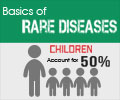A new study conducted by researchers at University of Eastern Finland suggests that children as young as 6 to 8 years old can suffer from metabolic disorders.

The researchers analyzed the relations of overweight, impaired glucose and fat metabolism and blood pressure to artery wall stiffness and arterial dilation capacity in 173 healthy children aged 6 to 8 years in Kuopio, eastern Finland. The study comprised part of the wider Physical Activity and Nutrition in Children (PANIC) study, which is carried out by a research group in the Institute of Biomedicine at the University of Eastern Finland. The PANIC study provides novel and scientifically valuable information on children's physical activity, nutrition, fitness, body composition, metabolism, vascular function, learning, oral health, sleep, pain and other factors of the quality of life. The original subject group was a population sample of 512 children from the city of Kuopio who were 6 years of age during the baseline examinations carried out between 2007 and 2009. The children underwent a wide variety of measurements relating to their lifestyle, health and well-being. Furthermore, their artery wall stiffness and arterial function were measured by the pulse contour analysis of the finger arterial waveform.
Arterial stiffness and reduced arterial dilation predict atherosclerosis, i.e. the hardening of the arteries, and resulting vascular diseases such as coronary artery disease, cerebral infarctions and lower extremity arterial disease. The newly published results are scientifically significant, as they suggest that metabolic disorders developing already in childhood could cause mild arterial stiffness, thus impairing vascular health. These results emphasize the importance of lifestyle improvement already in childhood in order to prevent metabolic and vascular dysfunction and resulting atherosclerotic events.
Source-Eurekalert














